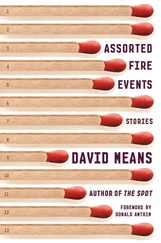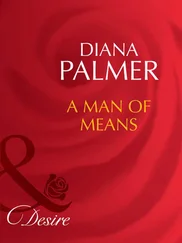“How so?”
“Well, my father seemed like a man . I hate the way that sounds, but it’s true.”
“Do I seem pathetic?”
“Yes,” she said. “Not as pathetic as you seemed that day at my house. Or even at the safe house. You seemed particularly pathetic.”
“How so?”
“I knew what you were thinking. You sided with the operative. You took his information and you ran,” she said.
“And you ran with me,” he said.
They were off the cloverleaf at the end of the bridge, turning west per instructions, following the coast of Lake Michigan.
“I didn’t have a choice. I don’t have one right now.”
“You had a choice. You have one right now. I can stop the car and let you out,” he said. His voice was tight and angry. The fuzzball in his head was singing.
“You need me in this operation. You need me, period.”
We went over the bridge, made note of some jumpers opening the hatch to a tower. We had a brief, terse exchange about the nature of the Corps, and the nature of our mission. We silently agreed to disagree. Then we relished the cool northern summer air and we felt ourselves committed, agent-to-agent , he would write, if he did write. Our confusion was acute. A debilitating sense of not understanding our own actions was internal. We understood that the Corps believed Rake was dead and that Klein either didn’t believe he was dead or was putting on an act that he didn’t believe he was dead.
“Your father, he was the pathetic one,” Singleton said.
“The word is pitiful . I felt pity for you. I used to feel pity for my father, but when he talked to you I heard a new tone. He seemed pitiful and pathetic until he talked to you. Next to you, he seemed heroic. You might think he told those stories again and again, but the truth is, Dad kept his mouth shut. He folded it up and went on with his life. I knew he’d been through trauma. I knew he was walking around holding it all in to protect me. But I respect him because he’s a fully functioning man.”
The whine in his ears was getting higher and louder and the road seemed to flex from side to side. He gripped the wheel tight while Wendy looked him over and told him he looked like he was getting sick, or having a flashback.
“I’m not having a flashback. At least not a pharmaceutically induced one. I’m still thinking about how I’ll put this in words, explain this part of the mission.”
“The president was finally killed. All hell broke loose. We took off.” She frowned. “Why this obsession with the operation report? Why do you feel this need to put everything into a system?”
“How did Ambrose get hold of that file? If they keep them under lock and key, how did he get a copy?”
“They wanted him to have a copy. When they handed it to him they knew he’d hand it to you.”
“I need to know. I need to know,” he said.
He pulled over to the side of the road, under tall pines clutching sandy soil, the isolated sunlight, dappled, coming down through the branches, and got out. Across the road, empty beach stretched to the west. There was an old grill and a pump with a working handle.
“I came up here as a teenager,” he said. “We camped on this beach, or somewhere near it.” He sat on a picnic bench carved with old names and dates. He put his face in his hands and suddenly began to sob.
“I feel genuinely sorry for myself. I feel this huge pity for myself.”
Wendy spread her arms and took a deep breath. “This is a real place and it’s beautiful, and it smells good, too. I say, fuck whatever they’re trying to do to us. We’re heading up to the target if he’s alive or dead, and we have to follow our guts on this.”
Looking out at Lake Michigan, across the road, he sensed again that he’d been here as a teenager, and that it had something to do with Rake, and the firebomb, and that scene in Hue. On a hot summer day he might have seen the Chicago mirage, the streets and towers visible high over the water, an optical trick of heat and light fantastic to behold if you were lucky enough to catch it. Whether or not it ever happened, the idea held a place in the hearts of Michiganders, who kept it alive from generation to generation. He felt the urge to cross the street and wade into the lake, which would be cold enough to unfold him completely if he stayed under long enough.
His eye was distracted by a gull riding out on a gust of air, holding wings steady and straight as it floated in a gentle swaying motion.
“Do you have an urge to go into that water?” Wendy said. He studied the freckles on her nose and her eyes. He remained silent.
“I’m sorry about what I said. My dad knew his story. You don’t. You know a little bit more now and you’re not as pathetic.”
“And I’m sorry about what I said. But I meant it. I can’t really say how I feel, I mean exactly how I feel, until I know exactly what the deal is.”
“Love means saying you’re sorry over and over and over again,” she said, and they laughed.
“I really don’t want to go in the water,” he said.
“You looked, sitting there, like a man who wanted to go for a swim.”
“Maybe a quick romantic dip? To wash the smoke out of my hair.”
“We should get in the car and keep driving. We don’t want to arrive at the target in the dark. Not if we can help it.”
* * *
The guns were out in the backseat, arranged neatly, along with two grenades. Miles and miles of forest were making Singleton’s head ache. In his report, he’d describe how the trees had been planted in a straight line that somehow suggested eternity, forcing the eye down long corridors of green, creating a strobe of light on the road when the sun was at the right angle. The only clear signal on the radio was from Canada, a CBN show playing Bach, the notes too pure and clear and precise.
“I’ll remember my military training when the time comes,” Singleton said. “I did the hand signals, on the porch back at the safe house. They came to me. I remembered details. A diagram of a clip and a spring came to me.”
“We don’t really have much of a plan, do we?”
“Training says approach target with assurance. Entrapment is the result of not having an exit plan, a detailed map of the stakeout area.”
In the report, he’d say the trees in their straight lines seemed to draw him onward toward Rake, either to terminate him or to confirm his status as dead. He’d tweak it as needed.
“Stop with the report,” Wendy said. She was eating a C-ration bar. He glanced and saw her tooth marks on it.
They drove until abruptly the trees thinned out and the road passed through a gate in a chain-link fence and the sky opened overhead, a galvanized, post-sunset gray. Right here, he thought. This is where the north begins. This is where at night the sky shimmers with cosmic activity. This is where the imaginations of most folks reach a limit and they draw a blank, like the isolated edge of my Causal Events Package. The beauty of the land disappeared as soon as the first house appeared, a one-story with peeling paint and a yard littered with stone monuments (some kind of private graveyard?), white concrete angels with stubby wings, three crosses, absurdly white, seemingly lit from within. On a wooden pole a black flag was snapping in the wind. Three choppers sat parked in the driveway, lined up side by side, like a chorus line, exactly at the same angle.
Wendy poked through the ashtray and found the half-burned joint. She lit it up.
“Late May the snow finally breaks and then in mid-October the snow begins. Not much of a season for riding a chopper.”
“Want a hit?” she said.
“Keep it low, don’t let it show. I’ve got to maintain an edge.”
Читать дальше












